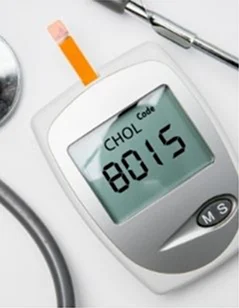Many people have serious concerns about having high cholesterol since it raises their chance of developing heart disease and other cardiovascular issues. While it is usual practice to give medications and dietary modifications to maintain cholesterol levels, the importance of physical exercise should not be understated.
The numerous advantages of regular exercise for general health include its beneficial effects on cholesterol levels. The relationship between exercise and high cholesterol will be discussed in this blog post, along with the role that physical activity can play in lowering cholesterol and promoting heart health.
Understanding Cholesterol
It's critical to comprehend what cholesterol is and its function in the body before digging into the connection between exercise and high cholesterol. The liver produces cholesterol, a waxy, fat-like molecule that is also found in some meals.
It is essential for the synthesis of vitamin D, hormone production, and the development of cell membranes. The risk of heart disease is increased when cholesterol levels are over the usual range because this might cause plaque to accumulate in the arteries, blocking blood flow.
Also Read: Acute Gastritis: Temporary Pain Symptoms and Treatment
The Role of Exercise
Maintaining healthy cholesterol levels is only one of the many health advantages of regular exercise. By raising levels of high-density lipoprotein (HDL), also known as "good" cholesterol, exercise has a direct effect on cholesterol. Low-density lipoprotein (LDL), also referred to as "bad" cholesterol, is helped to leave the bloodstream by HDL cholesterol. The formation of plaque in the arteries is caused by LDL cholesterol.
Exercise also aids in maintaining a healthy weight, lowering blood triglyceride levels (another form of fat), and enhancing cardiovascular health in general. Exercises that increase HDL cholesterol and lower LDL cholesterol, such as running, swimming, and cycling, have been found to be particularly effective. By building muscle and enhancing metabolism, strength training activities like weightlifting can also lower cholesterol.
Exercise Guidelines
It is crucial to adhere to a few rules in order to profit from exercise's ability to lower cholesterol levels. The American Heart Association advises engaging in at least 75 minutes of intense exercise or 150 minutes of moderate exercise each week. Additionally, two or more days a week should be dedicated to strength training exercises.
Before beginning any workout program, it is imperative to speak with a healthcare provider, especially for people with pre-existing medical concerns. Based on unique requirements and constraints, they can offer tailored advice.
Incorporating Exercise into Your Daily Routine
Including exercise in your daily routine is a doable objective that can significantly improve cholesterol management. Here are some crucial ideas to get you started and help you incorporate fitness into your daily life:
Start Slowly
It's crucial to start slowly if you're new to fitness or haven't been active in a while. Start off with low-impact exercises like slow cycling, swimming, or strolling. Increase the length and intensity of your workouts gradually as your fitness level rises. By using this strategy, you can reduce the risk of injuries and help your body get used to the physical demands of exercise.
Discover Activities You Like
Finding things that you truly enjoy is one of the biggest obstacles to maintaining a regular workout schedule. Exercises that you enjoy doing improve the likelihood that you'll continue with them over time. Discover what makes you happy and satisfied by experimenting with various hobbies. It might be dancing, going for a hike, engaging in sports, or even enrolling in dance classes. When you find an activity you enjoy, working out stops being a chore and starts being something you look forward to.
Make it a Habit
When incorporating exercise into your daily routine, consistency is essential. Consider your workouts to be non-negotiable appointments with yourself. Exercise at set times and make a commitment to it, just as you would with any other important assignment. Create a schedule that works for you, whether it's in the morning, around lunch, or in the evening. Making exercise a habit will make it simpler to prioritize and fit into your schedule.
Also Read: Nervous Stomach Symptoms
Final Takeaway
Exercise is essential for controlling excessive cholesterol and enhancing heart health. Regular exercise promotes weight control, lowers LDL cholesterol levels, and raises HDL cholesterol levels. You can actively lower your risk of heart disease and other cardiovascular issues by including exercise in your regular routine and according to suggested guidelines.
Always work with a healthcare practitioner to create an exercise program that is tailored to your unique requirements and capabilities. Start living an active, heart-healthy lifestyle right away and reap its long-term rewards.





.webp)


%20(1).png)
.png)
%20(1).png)


%20(1).png)




%201.png)
